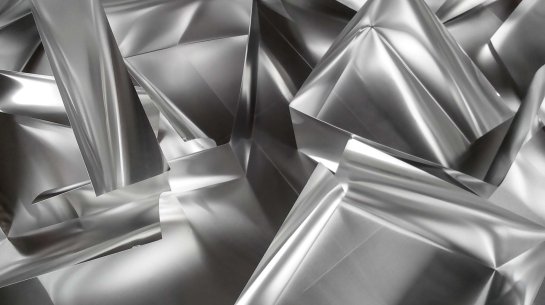News - 22-05-2024
Is aluminium underrated?
Aluminium is often underrated as a building material compared to wood, which is currently receiving significant attention from consultants and architectural schools.
LCAs on aluminium highlight the benefits in terms of long lifespans of up to 60 years, making aluminium attractive from a CO2 perspective - especially in windows and facades.
One of the biggest advantages of aluminium is the material's long lifespan. Aluminium structures can last for decades without losing their structural integrity or aesthetic value. This reduces the need for total replacements and thus reduces overall environmental impacts.
Thus, aluminium can measure up to wood as a sustainable material with a long lifespan that does not require the same maintenance. Wood, in particular, requires frequent maintenance and possibly replacement due to degradation over time when exposed to outdoor conditions.
Recycling and CO2 footprint
Aluminium is also an excellent candidate for recycling. Around 75-80% of all the aluminium ever produced is still in use today. Aluminium can be melted down and reused without losing its original properties.
This contributes to a lower CO2 footprint since recycling aluminium requires significantly less energy than producing new aluminium. Additionally, there is a large "material stock" in existing buildings, meaning that future constructions can benefit from already extracted and processed aluminium.
Energy efficiency and design freedom
Aluminium also has other practical advantages. The material is extremely stable and can support large glass panels, providing architects with great design freedom. Aluminium windows and facades can be tailored to specific needs and aesthetic preferences.
Furthermore, aluminium offers solutions with integrated sun shading, which improves indoor climate by regulating the amount of sunlight and heat entering the building.
Application in sustainable buildings
Compared to wood, which is rightfully considered a sustainable material, aluminium offers a range of advantages for exterior use when used correctly. Wood is ideal for indoor use or in less demanding outdoor environments, but aluminium excels in more demanding outdoor applications. It is resistant to corrosion and requires minimal maintenance, further extending its lifespan and reducing environmental costs.
All building materials have their strengths and weaknesses, and their sustainability depends largely on how they are used. Aluminium, when used thoughtfully, offers a long lifespan, recyclability, and low maintenance requirements, which can collectively lead to a lower CO2 footprint over a building's lifespan. It is important to know the full story and benefits of aluminium, especially as we strive for more sustainable building practices.
Aluminium is a good investment for the future of construction. With the opportunities for recycling, energy efficiency, and design flexibility, aluminium stands as an excellent choice that can compete with and even surpass traditional organic materials like wood in many applications.